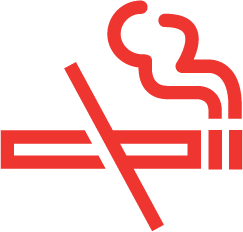Transplant from a living donor
Getting the living donor transplant process started
How do I start the transplant process?
To get a living donor transplant, you take the same steps as you would for a deceased donor transplant. You have to be on the deceased donor transplant waitlist even if you already have a living donor lined up.
You can begin the living donor transplant process when either:
- Your kidneys do 20% or less of the work of 2 working kidneys
- You start dialysis
Your transplant center will help you set up all of this and walk you through the process. This is just to give you an idea of what you might need. Here’s how to start the process:
-
- Contact the transplant center and ask to start the living kidney donor process. You may need your doctor to refer you, or you may be able to call the transplant center yourself. It depends on where you live. The transplant center will let you know if you need your doctor to refer you.
- Fill out the medical forms they send in the mail.
- Schedule an appointment with the transplant team to start a medical, psychological, and financial interview – this means the center will want to know about your health, your mental or emotional health, and how much money you make and have saved. Your testing and interviews, and your donor’s testing and interviews, can happen at the same time. If you’re both healthy enough for the surgery and your blood types match, the center can schedule the surgery.
 UNOS offers a booklet called ‘Frequently Asked Questions about Kidney Transplant Evaluation and Listing.’ This booklet has all of the steps and information about how to start the transplant evaluation process.
UNOS offers a booklet called ‘Frequently Asked Questions about Kidney Transplant Evaluation and Listing.’ This booklet has all of the steps and information about how to start the transplant evaluation process.
Download a copy of the booklet.
Medical tests and doctor appointments

These tests are to see if you’re healthy enough for surgery and if your transplant is likely to work. You can get these tests at your primary doctor or at the transplant center.
These tests can take months to a year, and need to be finished before surgery. Doctors will treat any major medical problems before the transplant surgery. They will do some or all of these tests:
Every visit
- Blood pressure – to see if your heart and arteries are healthy
Monthly
- Blood sample – to test for your blood type and for antigens in your blood
- Urine sample – to test for infections and other problems
Every 6 months
- Dental check – to make sure there are no infections in your gums and teeth
Yearly
- Chest x-ray – to see if you have any lung problems
- EKG – to look for a healthy heart rate and rhythm
- Echocardiogram – to test how well your heart pumps and how well your heart valves work
- Nuclear stress test – to see if your heart has blockages and pumps well
- Cancer screenings – to look for cancer, especially skin cancer
- VCUG – to see if your urinary tract is normal
- Prostate-specific antigen test – to test for prostate cancer in men over 50 or with a family history of prostate cancer
- Pap smear – if you’re a woman over 18, you’ll need a Pap smear to look for cervical cancer
- Mammography – if you’re a woman over 40 or have a family history of breast cancer, you’ll need a mammogram to look for breast cancer
- Colonoscopy – if you’re over 50 or have a family history of colon cancer, you’ll need to have a colonoscopy to look for colon cancer
If needed
- Cardiology (heart doctor) appointment – if you have a history of heart disease, high blood pressure, or diabetes, or if you have abnormal heart tests, you’ll see a heart doctor to decide if surgery is safe for you
Psychological interview

The psychological interview checks on your mental health and helps you deal with the emotions of a transplant. You will talk with a psychiatrist, psychologist, or a social worker about your support system, and your ability to cope with caring for a transplant. They can also help you work through how the transplant might affect your relationship with your donor, if it’s someone you know.
Financial interview

Most of the time, your insurance will cover most of your costs. Private insurance can vary in what or how much it covers. Medicare and Medicaid also pay for kidney transplants.
You may feel worried or scared about how you will cover your costs. If you need help paying for your transplant, the transplant social worker or financial counselor can help you find resources and plan for costs so you can focus on getting healthy after your transplant.
What happens after the interviews?
After you finish the interviews, the transplant center will decide whether you are able to get a transplant. If you are able to get one, the center will put your name and medical information on the UNOS waitlist.
When will my living donor transplant surgery happen?
You, your living donor, and the transplant team will schedule a time that’s best for you and your living donor. This means you will know your surgery appointment ahead of time so you can plan for it.
Transplant evaluation
Watch this video about the transplant evaluation process.
If you use nicotine or marijuana

The transplant center may not accept you if you smoke (including medical marijuana) or have a drug or alcohol problem. Smoking, drinking, and drugs can cause health problems during transplant. If you’re tested and results show you have nicotine or drugs in your system, the center is likely to turn you down or tell you to re-apply in about 6 months.
You’ll need to stop smoking before you reapply. This can be hard to do. Talk to your doctor about resources to help you stop. You’ll need to use therapy or medicines that don’t contain nicotine, because nicotine gum and other nicotine methods will show up in your test results.
Leaders in transplant excellence
UNOS works with leading educational partners to provide accurate, trustworthy health information. Our educational partners include:
Special thanks to our corporate sponsor for supporting excellence in transplant education:


